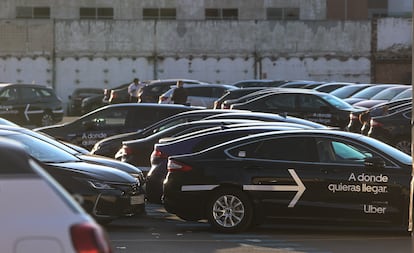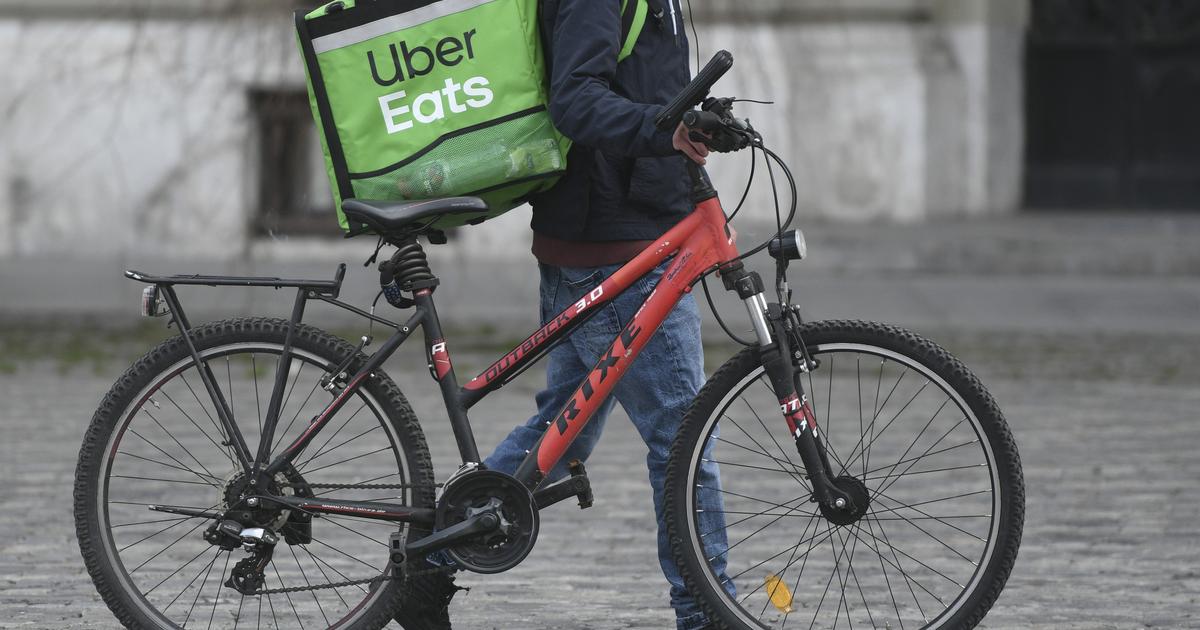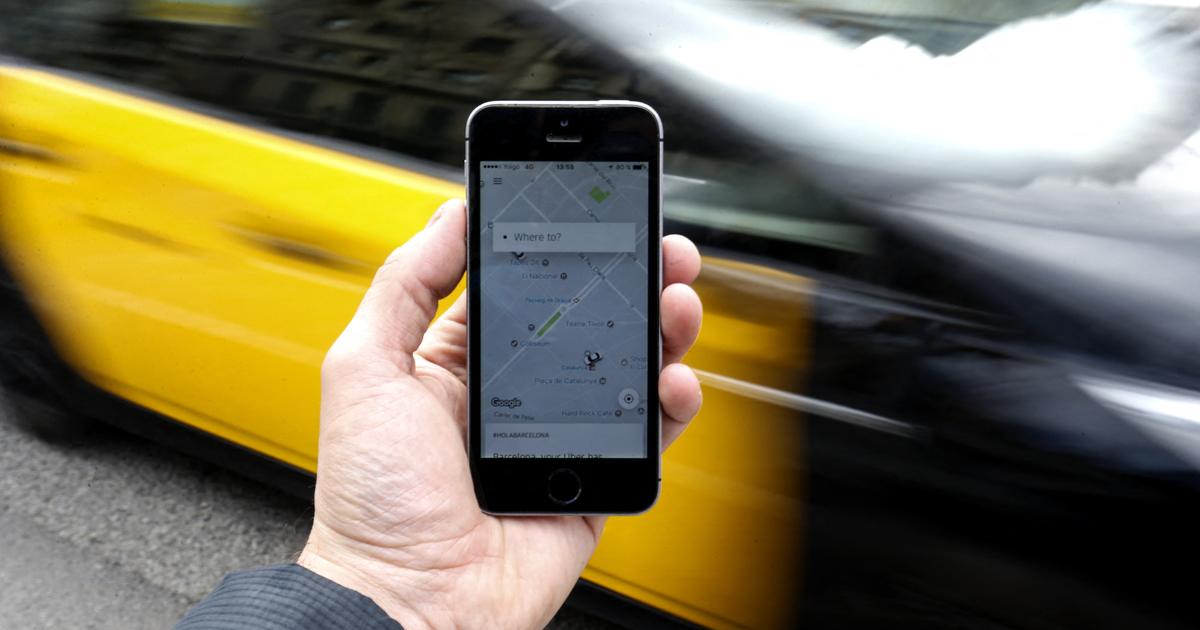1. What is
Uber Files
?
Uber Files
is a journalistic investigation that analyzes more than 124,000 internal files of Uber, the American company that offers cars with a driver through an application.
These are mostly emails, but there are also WhatsApp messages, SMS, presentations, and text or image documents.
The documentation covers the period between 2013 and 2017, dates in which the company begins its expansion in India and in some cities in Africa and Europe.
These are key years for Uber, which in 2014 alone debuted in 31 countries (Spain, among them) with an almost infinite economic cushion that guaranteed investments from funds such as Goldman Sachs or billionaires such as Jeff Bezos.
The company, which went public in 2019 in the United States with one of the highest market values ever recorded (75,000 million dollars), has never generated profits: in 2021 it registered a loss of 496 million dollars, despite having almost 120 million active users, invoice almost 18,000 million dollars and be a key player in the mobility of most European cities and the United States.
2. Where do the documents come from?
The documents have been leaked to the British newspaper
The Guardian
, which has shared them with the International Consortium of Investigative Journalists (ICIJ) and its network of collaborators, of which EL PAÍS and La Sexta are part in Spain. .
Starting this Sunday, 44 media in 29 countries will reveal the most relevant details of these files.
3. What information do they reveal?
The
Uber Files
offer an unprecedented look at the arrival of the mobility giant in dozens of countries where it has had legal problems and has collided with various social sectors, especially the taxi sector.
Through email exchanges between managers, regional managers and lobbyists
From the company you can see how it operated aware of offering an illegal service, with a strategy of open struggle against the authorities and focused on using the "narrative of violence" of the taxi drivers' protests for its benefits.
The confidential files show how a company capable of breaking the markets wherever it went thanks to the injections of non-refundable capital from large investment groups maintains its business on a network of drivers who are often inexperienced and with precarious work.
The documents also reveal how the
lobby
of a company of this type works and the different ways it has to get meetings with senior officials or members of the government of different countries: from its never-revealed meetings with Macron in France to the millionaire secret investments agreed with a Russian oligarch close to the Kremlin.
More information
Secret documents reveal Uber's strategies to establish itself in dozens of countries: "Sometimes there are problems because we are fucking illegal"
4. What is in Spain?
The documents show that the company followed in Spain, as in other countries, a policy of "fait accomplis".
When he ran into opposition from taxi drivers and obstacles from the administration, he decided to “develop tactics to confront the authorities” and tried to convince political leaders from a position of strength.
With Barcelona (where it landed in April 2014) and Madrid (September of that year) as major hubs for expansion, Uber tried to garner support at the highest level in local and regional governments.
He also tried to establish contact, among others, with the former president of the Government Mariano Rajoy and with the former president of the Generalitat Artur Mas.
Uber vehicles and drivers in an industrial estate in Vallecas, where a company that manages VTC licenses keeps Uber carsKIKE PARA
His development in Spain was not easy and these difficulties led him to play a kind of dirty war.
While taking advantage of the acts of violence in the taxi sector to present himself as a victim and obtain political gain, he hired a company to seek to spy on an association of Madrid taxi drivers.
When at the end of 2014 a judge ordered his dismissal in Spain, the directors of the company asked to look for the "weaknesses" of the magistrate.
Today, the most favorable regulation for VTCs (vehicles without drivers) in Madrid has allowed it to take a good chunk of the market, while the restrictions of the new decree in Catalonia and the tireless pressure of the taxi suffocate Uber in Barcelona.
Since 2019, Spain has been listed, along with Germany and Italy, as one of the key countries for the company's expansion.
5. What legal problems has Uber had in Spain?
The arrival of Uber in Spain was legally complex, but in its first months, from April 2014, its number of users skyrocketed.
There is little official data, but the company made public that year that its growth in the first six months of operations in Barcelona or Madrid was even faster than in cities like London or Paris.
2014
.
Uber, already outlawed in countries like Belgium and in the midst of a legal fight in London or Berlin, opens in Barcelona and then in Madrid.
After the taxi strikes and the attempts at regulation in Catalonia, a judge gives Uber the last straw and orders the cessation of its operations.
On December 31, Uber closes its services in Spain.
2015
.
Uber is fighting in Spanish courts as it tests its Uber Eats food delivery service in Spain.
2016
.
Uber returns to Madrid with very low prices and aggressive advertising.
It offers the UberX service, with licensed drivers of transport vehicles with driver (VTC).
The National Markets and Competition Commission (CNMC) issues a report in favor of Uber.
2017
.
The regional courts issue sentences with different meanings on a key element: the liberalization of VTC licenses.
Is it legal or not to limit them, as taxi drivers ask?
The Government presents a draft to regulate the VTC and include some demands of the taxi drivers, such as that the licenses cannot be transmitted until two years after their granting.
In November, the Supreme Court gives free rein to the granting of VTC licenses in Madrid and Barcelona and establishes jurisprudence.
2018
.
In several European cities, it opens the way for more VTC licenses.
In September, the Spanish Government approved a royal decree that ceded the powers of issuing licenses and regulating vehicles to the autonomous communities.
Thus, it equates administrative levels in the ordering of taxis and Uber and Cabify services.
The two companies take the rule to the Constitutional Court.
2019
.
The year starts with long and participated strikes by taxi drivers in Madrid and Barcelona, a city where Uber and Cabify stop operating after the Generalitat rule that requires booking the car 15 minutes in advance.
Most communities follow the Catalan example, but not Madrid.
Several VTC companies present ERE of their drivers.
Even so, it will close the year billing in Spain five times more than the previous year.
And, in the United States, it goes public: its starting price will remain at 83,800 million.
2020
.
The pandemic and lockdowns are hitting Uber hard, but UberEats is still growing.
In Spain, income from this service is multiplied by four.
2021
.
The Superior Court of Justice of Madrid tomb down part of the 2018 decree that allowed the autonomies and municipalities to withdraw VTC permits after a four-year moratorium.
2022
.
Uber once again offers its chauffeur-driven car service in Barcelona, after a year in which it only operated as an intermediary application to get a taxi, despite protests from taxi drivers.
Meanwhile, the Supreme Court throws the ball to Europe: it will be the European Court of Justice that decides whether imposing limitations on VTC licenses to ensure their "compatibility and complementarity with taxis" is compatible with the freedom of establishment.
6. What relationship do Uber drivers have with the company today?
There are three types of Uber drivers.
Most of them work for companies that manage VTC licenses and hire drivers without the need for experience and with little training.
The company manages Uber cars and assigns them to drivers, who are pressured to bill at least 3,500 euros per month to maintain a fixed base salary: 1,100 euros.
To earn more, the driver has to work more hours and above all bill more: if he exceeds 4,000 euros in trips, he earns 1,360 euros (before taxes).
There are also freelancers, who have their VTC license and bill Uber directly.
In this case, the company keeps 25% of the races.
A third category are taxi drivers who sign up for one-off rides in the Uber app, just as they can do in others like Cabify.
They are the minority, although sources in the sector suggest that their number is on the rise.
50% off
Exclusive content for subscribers
read without limits
subscribe
I'm already a subscriber









